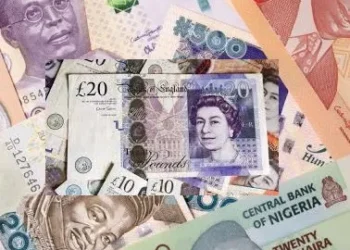The naira continued its downward trend against the U.S. dollar on October 9, 2024, closing at N1,625.13 in the official Investor and Exporter (I&E) window. This marks a 4.06% drop from the previous day’s closing rate of N1,561.76. The decline comes amid a broader weakening of Nigeria’s foreign exchange market and a dip in crude oil prices.
Market activity also slowed significantly, with turnover in the I&E window plummeting by 49%, falling to $170.60 million from the $253.68 million traded the previous day. This sharp decline in turnover mirrors a broader trend of decreasing foreign exchange inflows.
Key Exchange Rate Movements
Throughout the trading session, the naira fluctuated, reaching a peak of N1,652.00 and a low of N1,560.00, before finally settling at N1,625.13. The dip reflects ongoing pressure on Nigeria’s foreign exchange market, which has seen the naira steadily devalue throughout 2024.
In the parallel market, the naira opened at N1,619.22 to the dollar and ended the day slightly lower at N1,618.85, reflecting minor volatility in off-market trading.
Broader Trends in 2024
The naira has experienced a dramatic depreciation of over 70% since the start of 2024. In January, the currency traded at N907.11/USD but by October had surpassed the N1,500/USD threshold. This rapid decline was marked by key moments throughout the year, such as February’s record high of N1,616.53 and brief periods of recovery, including March when the naira stabilized around N1,303.
However, these recoveries were short-lived. By the end of September, the currency had fallen to N1,668.97, reflecting ongoing pressure from weak economic fundamentals and strained foreign reserves.
Economic Context
In addition to the currency devaluation, Nigeria’s economic outlook has been further impacted by fluctuations in global oil prices. Brent crude prices dropped to $76 per barrel, while domestically, fuel prices spiked, with petrol reaching N1,030 per liter. These increases are expected to contribute to rising inflation, as businesses pass on higher energy costs to consumers.
Outlook
As the naira continues to struggle, market analysts warn of potential inflationary effects, especially with rising fuel costs. The devaluation could also affect investor confidence, with major players likely waiting for more favorable economic conditions before committing to Nigeria’s currency markets. For now, sustained investment interest will depend on positive developments that can stabilize the economy and restore confidence in the naira.









